Radiation treatment is a kind of cancer growth treatment that utilizes light emissions energy to eliminate diseased cells. Radiation treatment frequently uses X-beams, yet protons or different sorts of energy likewise can be utilized.
The expression "radiation therapy" regularly alludes to external beam radiation treatment. During this kind of radiation, the high-energy beams originate from a machine outside of your body that points the bars at an exact point on your body. During an alternate kind of radiation treatment called brachytherapy (brak-e-THER-uh-pee), radiation is put inside your body.
Radiation treatment harms cells by wrecking the genetic material that controls how cells develop and separate. While both healthy and carcinogenic cells are harmed by radiation treatment, the objective of radiation treatment is to annihilate as not many typical, normal cells as could reasonably be expected. Typical cells can regularly fix a significant part of the harm brought about by radiation.
There are various symptoms that crop up both short term and long term. The short term may include:
Fatigue
Hair loss
Diarrhea
Skin changes
Nausea and vomiting
Heart or lung problems, if radiation affects the chest
Thyroid problems, leading to hormonal changes, if radiation affects the neck area
Lymphedema, which involves lymph fluid building up and causing pain
Hormonal changes, including a possibility of early menopause, from radiation in the pelvic area
There is a slight chance that high doses of radiation in certain areas can increase the risk of another form of cancer developing. A doctor will provide more specific information and help with weighing the risks and benefits.
There can be several factors affecting the costing of the procedure and the entire billing. Few of them depend on the current medical status of the patient and others are just hygiene.
Age of the patient
Stage of cancerous growth in the patient
The spending capacity of the patient
Technology and resources used for the treatment process
| Country | Cost | Local_currency |
|---|---|---|
| Greece | USD 15000 | Greece 13800 |
| India | USD 3800 | India 315970 |
| Israel | USD 20000 | Israel 76000 |
| Lebanon | USD 15000 | Lebanon 225083250 |
| Malaysia | USD 10000 | Malaysia 47100 |
| South Korea | USD 20000 | South Korea 26853800 |
| Spain | USD 20040 | Spain 18437 |
| Switzerland | USD 15000 | Switzerland 12900 |
| Tunisia | USD 15000 | Tunisia 46650 |
| Turkey | USD 5530 | Turkey 166674 |
| United Arab Emirates | USD 21000 | United Arab Emirates 77070 |
| United Kingdom | USD 21500 | United Kingdom 16985 |
Treatment cost
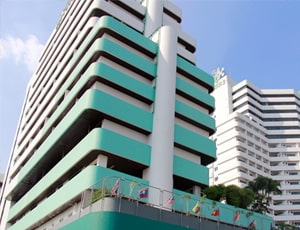
Types of Intensity-modulated radiotherapy (IMRT) in Phyathai 2 International Hospital and its associated cost
| Treatment Option | Approximate Cost Range (USD) | Approximate Cost Range (THB) |
|---|---|---|
| IMRT (Overall) | 5734 - 16957 | 201359 - 596869 |
| Head and Neck IMRT | 5434 - 10228 | 191677 - 366705 |
| Breast IMRT | 5126 - 8941 | 182265 - 315216 |
| Prostate IMRT | 5285 - 11158 | 188964 - 403518 |
| Abdominal IMRT | 5082 - 10333 | 179336 - 361900 |
| Pelvic IMRT | 5023 - 10316 | 178363 - 355761 |
| Spine IMRT | 5284 - 11281 | 192097 - 396364 |
| Brain IMRT | 5013 - 8042 | 181657 - 283616 |
| Lung IMRT | 5309 - 11321 | 196645 - 409602 |
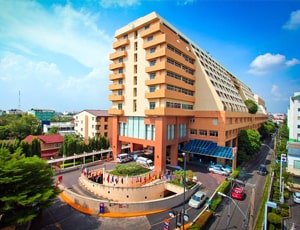
Types of Intensity-modulated radiotherapy (IMRT) in Vejthani Hospital and its associated cost
| Treatment Option | Approximate Cost Range (USD) | Approximate Cost Range (THB) |
|---|---|---|
| IMRT (Overall) | 5660 - 17165 | 198012 - 607634 |
| Head and Neck IMRT | 5479 - 10131 | 190792 - 368532 |
| Breast IMRT | 5138 - 9086 | 182448 - 324598 |
| Prostate IMRT | 5342 - 11241 | 190242 - 397139 |
| Abdominal IMRT | 4950 - 10098 | 181638 - 366892 |
| Pelvic IMRT | 5015 - 10319 | 178513 - 361993 |
| Spine IMRT | 5501 - 11427 | 192006 - 404720 |
| Brain IMRT | 5121 - 7803 | 183071 - 277528 |
| Lung IMRT | 5363 - 11268 | 195764 - 408310 |
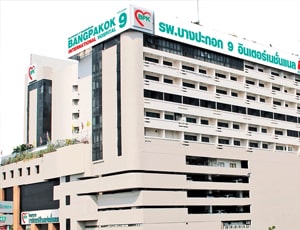
Types of Intensity-modulated radiotherapy (IMRT) in Bangpakok 9 International Hospital and its associated cost
| Treatment Option | Approximate Cost Range (USD) | Approximate Cost Range (THB) |
|---|---|---|
| IMRT (Overall) | 5547 - 16561 | 200480 - 608267 |
| Head and Neck IMRT | 5317 - 10229 | 193326 - 363691 |
| Breast IMRT | 5002 - 9041 | 176752 - 327083 |
| Prostate IMRT | 5299 - 11038 | 192710 - 395151 |
| Abdominal IMRT | 5077 - 10148 | 176470 - 361624 |
| Pelvic IMRT | 5141 - 10335 | 182178 - 354870 |
| Spine IMRT | 5410 - 11065 | 196623 - 403093 |
| Brain IMRT | 5109 - 7926 | 177027 - 276704 |
| Lung IMRT | 5286 - 11232 | 193714 - 404696 |

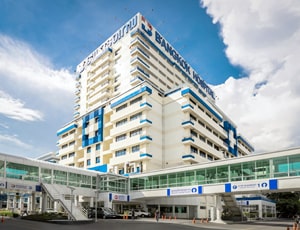
Types of Intensity-modulated radiotherapy (IMRT) in Bangkok Hospital and its associated cost
| Treatment Option | Approximate Cost Range (USD) | Approximate Cost Range (THB) |
|---|---|---|
| IMRT (Overall) | 5703 - 16909 | 198444 - 609378 |
| Head and Neck IMRT | 5495 - 10319 | 188951 - 355804 |
| Breast IMRT | 5142 - 8822 | 183973 - 315821 |
| Prostate IMRT | 5388 - 11307 | 191057 - 403369 |
| Abdominal IMRT | 5114 - 10306 | 179012 - 357461 |
| Pelvic IMRT | 5080 - 10181 | 178117 - 365881 |
| Spine IMRT | 5355 - 11216 | 189985 - 407781 |
| Brain IMRT | 4997 - 7829 | 182813 - 279015 |
| Lung IMRT | 5420 - 11181 | 191513 - 398104 |
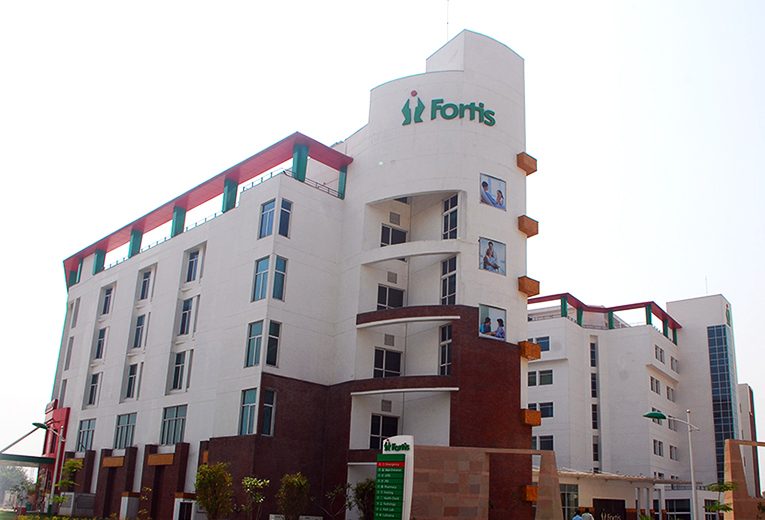
Fortis Hospital, Shalimar Bagh is a super-speciality hospital which occupies a unique place when it comes to providing world class patient care. The hospital is equipped with 262 beds and is expanded over a total area of 7.34 acres. It provides the highest quality of medical care via its team of doctors, technicians, nurses, and management professionals.
Infrastructure & facilities:
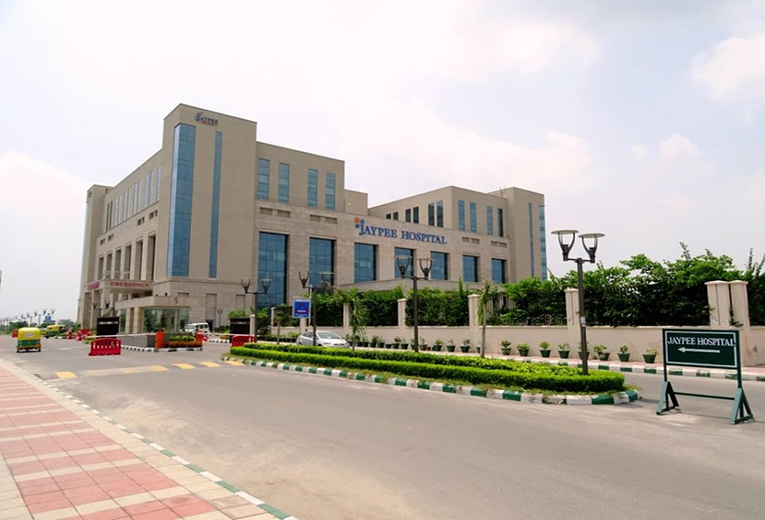
Jaypee Hospital located in Noida, India is accredited by ISO, NABH, NABL. Also listed below are some of the most prominent infrastructural details:
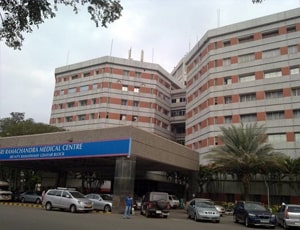
Types of Intensity-modulated radiotherapy (IMRT) in Sri Ramachandra Medical Centre and its associated cost
| Treatment Option | Approximate Cost Range (USD) | Approximate Cost Range (INR) |
|---|---|---|
| IMRT (Overall) | 4545 - 8090 | 372993 - 666601 |
| Head and Neck IMRT | 3537 - 7096 | 292541 - 584893 |
| Breast IMRT | 2341 - 6584 | 191961 - 541419 |
| Prostate IMRT | 3873 - 7105 | 316024 - 583569 |
| Abdominal IMRT | 2538 - 6875 | 208565 - 568336 |
| Pelvic IMRT | 2530 - 6887 | 207090 - 563726 |
| Spine IMRT | 2855 - 8144 | 233163 - 666928 |
| Brain IMRT | 2528 - 6915 | 207924 - 565408 |
| Lung IMRT | 2834 - 8116 | 233510 - 665016 |
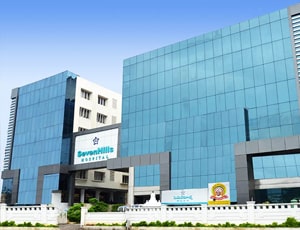
Types of Intensity-modulated radiotherapy (IMRT) in Seven Hills Hospital and its associated cost
| Treatment Option | Approximate Cost Range (USD) | Approximate Cost Range (INR) |
|---|---|---|
| IMRT (Overall) | 5114 - 8881 | 421725 - 724362 |
| Head and Neck IMRT | 4018 - 7793 | 323940 - 655921 |
| Breast IMRT | 2644 - 7233 | 211659 - 607977 |
| Prostate IMRT | 4332 - 8031 | 348110 - 632383 |
| Abdominal IMRT | 2826 - 7810 | 227602 - 627874 |
| Pelvic IMRT | 2790 - 7532 | 232147 - 638003 |
| Spine IMRT | 3088 - 8802 | 263762 - 750418 |
| Brain IMRT | 2841 - 7768 | 232340 - 613705 |
| Lung IMRT | 3134 - 9137 | 263655 - 728308 |
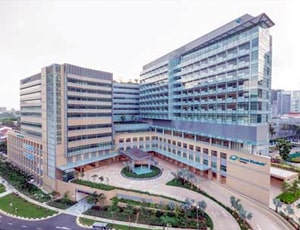
Mount Elizabeth Novena Hospital located in Novena, Singapore is accredited by JCI. Also listed below are some of the most prominent infrastructural details:
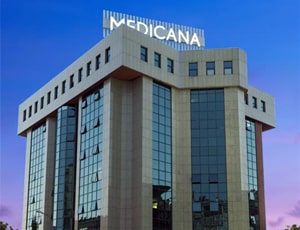
Types of Intensity-modulated radiotherapy (IMRT) in Medicana Camlica Hospital and its associated cost
| Treatment Option | Approximate Cost Range (USD) | Approximate Cost Range (TRY) |
|---|---|---|
| IMRT (Overall) | 2038 - 6639 | 61419 - 205773 |
| Head and Neck IMRT | 2046 - 5563 | 62372 - 172428 |
| Breast IMRT | 1699 - 5116 | 51586 - 151651 |
| Prostate IMRT | 2209 - 5526 | 67140 - 170861 |
| Abdominal IMRT | 2032 - 4973 | 59698 - 155074 |
| Pelvic IMRT | 1999 - 5048 | 61157 - 153744 |
| Spine IMRT | 2282 - 5651 | 67788 - 169955 |
| Brain IMRT | 2032 - 5088 | 61360 - 154615 |
| Lung IMRT | 2226 - 6244 | 67763 - 184984 |
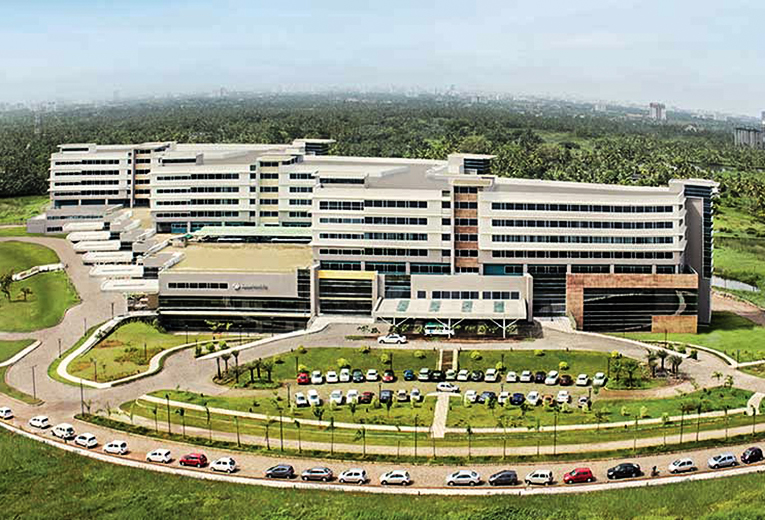
Types of Intensity-modulated radiotherapy (IMRT) in Aster Medcity and its associated cost
| Treatment Option | Approximate Cost Range (USD) | Approximate Cost Range (INR) |
|---|---|---|
| IMRT (Overall) | 4550 - 8094 | 373776 - 667912 |
| Head and Neck IMRT | 3551 - 7126 | 291765 - 583772 |
| Breast IMRT | 2341 - 6626 | 190493 - 541618 |
| Prostate IMRT | 3867 - 7112 | 316654 - 584075 |
| Abdominal IMRT | 2540 - 6913 | 207540 - 564508 |
| Pelvic IMRT | 2530 - 6904 | 208476 - 564951 |
| Spine IMRT | 2841 - 8105 | 233378 - 668551 |
| Brain IMRT | 2530 - 6881 | 208312 - 567550 |
| Lung IMRT | 2840 - 8097 | 231984 - 666482 |
Types of Intensity-modulated radiotherapy (IMRT) in Pushpawati Singhania Research Institute and its associated cost
| Treatment Option | Approximate Cost Range (USD) | Approximate Cost Range (INR) |
|---|---|---|
| IMRT (Overall) | 4560 - 8129 | 374641 - 663934 |
| Head and Neck IMRT | 3551 - 7080 | 290912 - 580416 |
| Breast IMRT | 2344 - 6620 | 191112 - 543355 |
| Prostate IMRT | 3852 - 7098 | 315810 - 584592 |
| Abdominal IMRT | 2536 - 6926 | 208522 - 567436 |
| Pelvic IMRT | 2531 - 6898 | 207540 - 566368 |
| Spine IMRT | 2830 - 8088 | 233967 - 663507 |
| Brain IMRT | 2542 - 6905 | 207376 - 567842 |
| Lung IMRT | 2838 - 8081 | 234157 - 668000 |
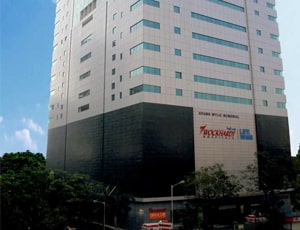
Types of Intensity-modulated radiotherapy (IMRT) in Wockhardt Hospital - A New Age Hospital and its associated cost
| Treatment Option | Approximate Cost Range (USD) | Approximate Cost Range (INR) |
|---|---|---|
| IMRT (Overall) | 4557 - 8085 | 374652 - 667978 |
| Head and Neck IMRT | 3557 - 7139 | 292289 - 580529 |
| Breast IMRT | 2326 - 6599 | 192144 - 538699 |
| Prostate IMRT | 3868 - 7085 | 316475 - 580709 |
| Abdominal IMRT | 2535 - 6886 | 207612 - 564670 |
| Pelvic IMRT | 2530 - 6915 | 207373 - 568081 |
| Spine IMRT | 2832 - 8150 | 233164 - 662991 |
| Brain IMRT | 2539 - 6934 | 209055 - 565007 |
| Lung IMRT | 2845 - 8101 | 233308 - 666735 |
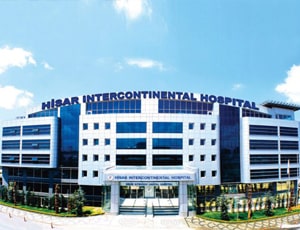
Types of Intensity-modulated radiotherapy (IMRT) in Hisar Intercontinental Hospital and its associated cost
| Treatment Option | Approximate Cost Range (USD) | Approximate Cost Range (TRY) |
|---|---|---|
| IMRT (Overall) | 2019 - 6667 | 60475 - 205854 |
| Head and Neck IMRT | 2039 - 5709 | 61928 - 171760 |
| Breast IMRT | 1686 - 5023 | 50701 - 150740 |
| Prostate IMRT | 2206 - 5591 | 68684 - 166634 |
| Abdominal IMRT | 2054 - 5066 | 59789 - 152721 |
| Pelvic IMRT | 1985 - 5003 | 61164 - 150736 |
| Spine IMRT | 2204 - 5524 | 68943 - 171322 |
| Brain IMRT | 2055 - 5093 | 61210 - 155592 |
| Lung IMRT | 2255 - 6108 | 67415 - 186614 |
DOCTORS IN 12 SPECIALITIES
FACILITIES & AMENITIES
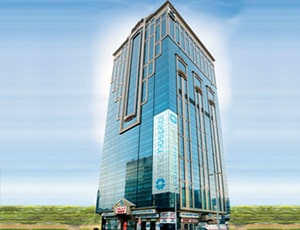
Types of Intensity-modulated radiotherapy (IMRT) in NMC Specialty Hospital and its associated cost
| Treatment Option | Approximate Cost Range (USD) | Approximate Cost Range (AED) |
|---|---|---|
| IMRT (Overall) | 9168 - 39040 | 32568 - 146026 |
| Head and Neck IMRT | 8275 - 13238 | 31620 - 48555 |
| Breast IMRT | 7708 - 12232 | 28868 - 44771 |
| Prostate IMRT | 8510 - 14728 | 30321 - 53075 |
| Abdominal IMRT | 7859 - 12203 | 29112 - 45993 |
| Pelvic IMRT | 8014 - 12470 | 28531 - 45231 |
| Spine IMRT | 8257 - 14866 | 30860 - 54512 |
| Brain IMRT | 8019 - 10242 | 28436 - 37469 |
| Lung IMRT | 8584 - 14869 | 31388 - 52640 |
Intensity-modulated radiotherapy (IMRT) is a type of conformal radiotherapy, a technology that enables the radiation oncologist to precisely target the tissues with cancer cells. . In this type of radiation therapy for cancer, the radiation beams closely take up the shape of the area that is being targeted.
IMRT is delivered through the standard radiotherapy machine, which is also known as the linear accelerator (LINAC). This machine has a device called multileaf collimator, which possesses lead leaves that can move independently to form a shape that best fits the target area.
Because the radiation beams can take up the shape of the target area, high dosage of radiation can be delivered to kill the cancer cells while minimizing exposure to the non-cancerous cells and tissues. IMRT proves to be highly effective in the case of head and neck cancer among other types of cancer.IMRT for prostate cancer is now available across all major hospitals around the world.
The efficiency of IMRT has already been tested for multiple cancers, including breast cancer. Latest advancements improving the efficacy of radiotherapy, however, continue to take place in the field of healthcare. This radiation treatment for cancer is already being used as a standard treatment for some cancer types.
Typically, the following steps are performed during the IMRT session:
A typical IMRT session lasts for about 15 to 30 minutes.
IMRTradiation therapy for cancer is a painless procedure. The patient does not feel anything during the radiotherapy session. However, there could be some level of discomfort due to posture or the use of masks and moulds. After this radiation treatment for cancer, the patient is made to lie on the table for a few minutes after the treatment to relax.
A few patients may experience increased frequency of urination or a sudden urge to urinate. Patients are advised to drink at least six to eight glasses of water every day to recover quickly from the session. Additionally, they should try to avoid excess consumption of spicy foods, caffeine, and alcohol during the recovery phase.
Recovery Process post-Intensity-modulated radiotherapy (IMRT)
Some patients may feel excessive tiredness and fatigue during the course of radiation treatment. Such patients should plan their daily activities and take several short naps during the day to manage their energy levels. Additionally, they are advised to take high protein and high-calorie foods during and after the treatment.
Patients should use a non-scented soap to clean the area that has been exposed to radiation. Additionally, they should keep their skin moisturized.
Ask your healthcare adviser for the best multiple options and choose the one that meets your expectations
The cost of Intensity-modulated radiotherapy (IMRT) in Thailand may differ from one medical facility to the other. The cost quoted by some of the best hospitals for Intensity-modulated radiotherapy (IMRT) in Thailand generally covers the pre-surgery investigations of the patient. Typically, the package cost of Intensity-modulated radiotherapy (IMRT) in Thailand includes the expenses related to the surgeon's fee, anesthesia, hospital, meals, nursing and ICU stay. Extended hospital stay, complications after the surgery or new diagnosis may affect the overall cost of Intensity-modulated radiotherapy (IMRT) in Thailand.
Many hospitals in Thailand perform Intensity-modulated radiotherapy (IMRT). For quick reference, the following are some of the leading hospitals for Intensity-modulated radiotherapy (IMRT) in Thailand:
While the speed of recovery may vary from patient to patient, they are still required to stay for about 30 days after discharge. This duration of stay is recommended to complete all the necessary follow-ups and control tests to ensure that the surgery was successful.
There are certain expenses additional to the Intensity-modulated radiotherapy (IMRT) cost that the patient may have to pay for. These are the chanrges for daily meals and hotel stay outside the hospital. These charges starts from USD 50 per person.
There are many cities that offer Intensity-modulated radiotherapy (IMRT) in Thailand, including the following:
It is possible for patients to opt for video telemedicine consultation before they come for Intensity-modulated radiotherapy (IMRT) in Thailand. Some of the surgeons offering this service include the following
| Doctor | Cost | Schedule Your Appointment |
|---|---|---|
| Dr. Saipin Tangkaratt | USD 130 | Schedule Now |
| Dr. Suchart Chaimuangraj | USD 81 | Schedule Now |
| Dr. Voratape Kijtavee | USD 81 | Schedule Now |
The average duration of stay at the hospital after Intensity-modulated radiotherapy (IMRT) is about 1 day for proper care and monitoring. The patient is subjected to several biochemistry and radiological scans to see that everything is okay and the recovery is on track. After making sure that patient is clinically stable, discharge is planned.
There are more than 4 hospitals that offer Intensity-modulated radiotherapy (IMRT) in Thailand. These clinics have proper infrastructure for the treatment of patients who require kidney transplant. Such hospitals follow all legal protocols and guidelines as specified by the local medical affairs body when it comes to the treatment of international patients.
Some of the top medical specialists for Intensity-modulated radiotherapy (IMRT) in Thailand are: